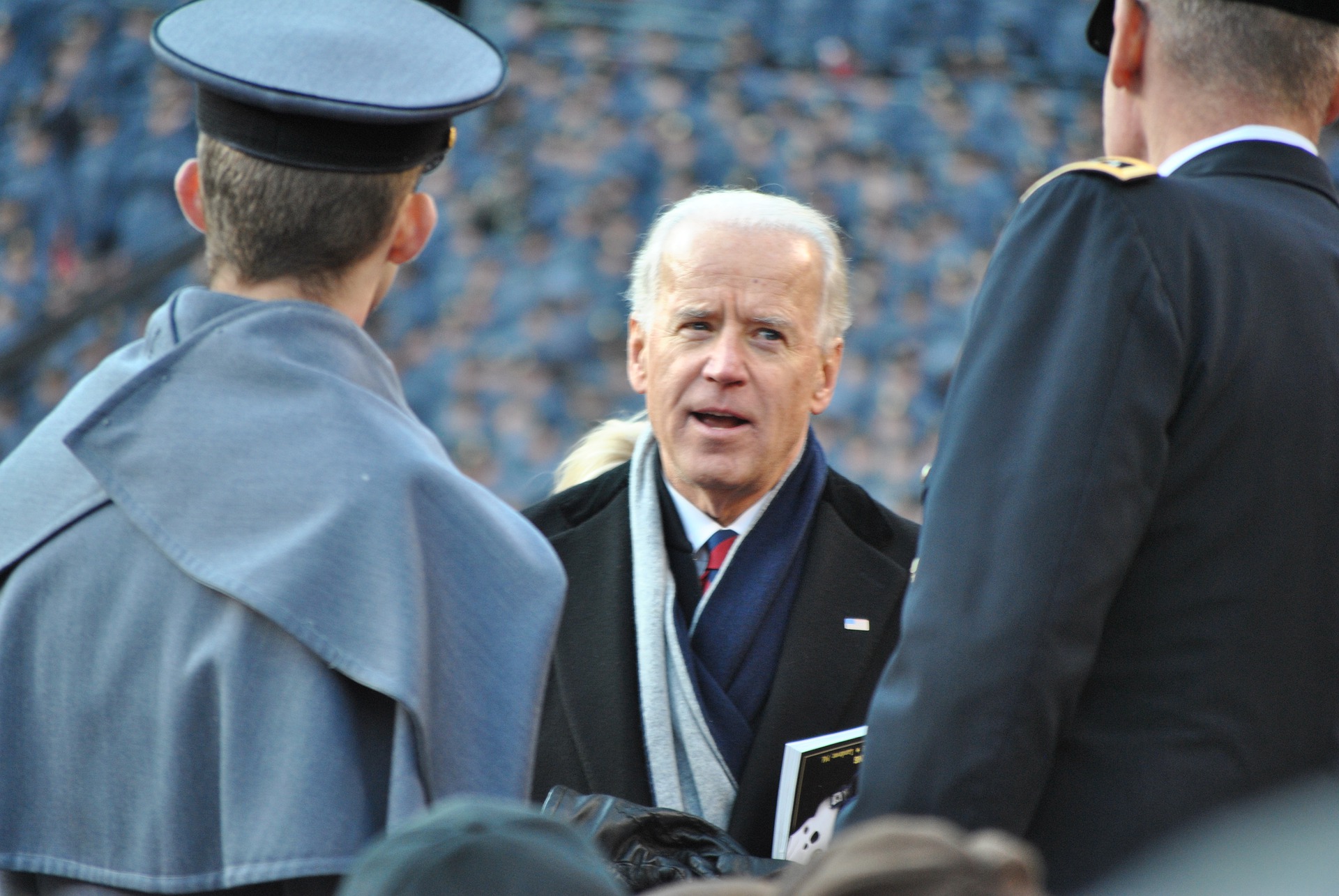In the wee hours of February 26, American military forces in the Middle East carried out a handful of air strikes against Iranian paramilitary forces in Syria. To my knowledge it represents the first such public strike against known Iranian forces in the country in a very long time.
It is exceedingly dangerous to opine at length about any military action carried out by an administration as newborn as TeamBiden. The almost-overwhelming urge is to read-in grand-plan ambitions such as attempting to reset relations with Iran, or shape the Israeli-Saudi dynamic, or presage greater involvement in the region as a whole as a prelude to a broadscale geopolitical rewiring. (Many of Biden’s current national security team were with then-Vice President Biden during the Obama Administration, and watched helplessly and hopelessly as President Obama failed to do jack at a time when forthright American action could have generated positive results. There very well could be some now-that-I’m-in-charge-ism going on.)
The reality is probably much more prosaic, and probably is much closer to what the Biden administration’s official statement claimed: On Feb 15 a local militia carried out rocket attacks against a U.S. facility in the northern Iraqi city of Erbil. That group was a front for Iranian militias in the region. TeamBiden wants to dissuade future attacks while the White House finishes reviewing options for American policy in Iraq.
If the official statement holds true, it’d put the U.S. strike very firmly in the Clintonesque bucket. Bill Clinton wasn’t particularly interested by anything that had to with foreign affairs, but he also wasn’t shy about dispensing moderate levels of military force when his advisors so advised. That isn’t meant as either a lauding or condemnation of the Clinton administration’s Middle East policies, but instead simply a recognition that Clinton was willing to use the various levers of American power in ways neither Obama nor Trump ever did. It’s a fairly traditional view of American power.
Now, just because there probably is no grand plan here doesn’t mean that there won’t be many reverberations. After all, it has been 20 years since the United States had a commander in chief that did much of anything against Iranian interests in the region by means of military strikes – W Bush required a degree of Iranian cooperation against al Qaeda and in managing Iraq, Obama was (infamous) for wanting nothing to do with it at all, and Trump opted for a nearly complete hands-off approach with a couple notable exceptions. Intentionally or not this is a signal change that will have consequences.
A few thoughts:
Turkey: The Turks are absolutely thrilled. Any U.S. policy which involves hurling American ordinance into Syria against anyone except Turkish proxies is one that Ankara can set to music. Turkish-American relations under the past three American presidents have gotten steadily worse to the point that today they are somewhere between cold and nonexistent. It isn’t so much that the Turks want the Americans to be in-region in general, but instead the Turks do appreciate it when the Americans shoot up military factions that the Turks oppose but are too gun-shy to directly go after themselves. The Turkish government was furious with the Obama Administration for threatening to go after the Syrian government but then ultimately backing down. In the Turkish mind Biden is no longer synonymous with his old boss. Down the road, that little reclassification will come in handy for both the Turks and Americans.
Israel: The Israeli government loved the Trump Administration’s maximum pressure campaign to isolate Iran, just as much as they hated the Obama Administration’s engagement with Iran. With Biden flinging bombs and looking to enact a far harsher version of Obama’s 2015 nuclear deal, there now exists the tantalizing possibility of the best of all worlds. Military and economic containment of Iran. I’m sure folks in Jerusalem are smiling thoughtfully at the possibilities.
Russia: According to regional press reports the Biden Administration only alerted the Russians of the actions after the munitions were in-flight. America has long opposed the Russian military presence in Syria, but Obama and Trump were simply not invested enough to do anything about it. Anything that raises a hint of Russian military casualties at American hands is something that would make the Russians extraordinary nervous. After all, the Russian deployments to Syria cannot be maintained in the face of Turkish or American military hostility.
Iraq: Baghdad hasn’t had much to be happy about for a good long while, existing as it does in a politically fractured, economically devastated, strategic limbo. They’re not happy with Iranian militias, but they’re equally unhappy with American military actions. That this counterstrike occurred in Syria rather than Iraq deflects attention from the Iraqis. It’s a small favor from TeamBiden, but Baghdad will accurately interpret it as a favor nonetheless.
Iran: Strategically, the Iranians are in a box. Trump’s maximum pressure campaign had gutted Tehran’s ability to sell crude – and those sales pay for everything that makes Iran Iran, from subsidies to keep its own citizens quiet to the paramilitary forces that comprise the bulk of Iran’s broader Middle Eastern strategy. Iran has run out of expendable forces to deploy in Syria and is now digging deep into its formal army officers. I’d be surprised if the Iranians did not lose someone fairly high-up the chain in today’s U.S. strike.
For some time now, Iran has been attempting to generate some leverage to use against the Americans in upcoming talks, but it isn’t going well. Iran hijacked a South Korean products tanker back around New Years, but neither TeamTrump nor TeamBiden has cared enough to do anything (all hail shale-revolution-induced-American-energy-independence!). Iranian proxies in Iraq regularly lob rockets into American green zones. What was different about the Feb 15 attack is they actually killed a civilian contractor (a Philippine national), which led TeamBiden to underline that consequence-free American blam remains just a button-push away.
If you enjoy our free newsletters, the team at Zeihan on Geopolitics asks you to consider donating to Feeding America.
The economic lockdowns in the wake of COVID-19 left many without jobs and additional tens of millions of people, including children, without reliable food. Feeding America works with food manufacturers and suppliers to provide meals for those in need and provides direct support to America’s food banks.
Food pantries are facing declining donations from grocery stores with stretched supply chains. At the same time, they are doing what they can to quickly scale their operations to meet demand. But they need donations – they need cash – to do so now.
Feeding America is a great way to help in difficult times.
The team at Zeihan on Geopolitics thanks you and hopes you continue to enjoy our work.








